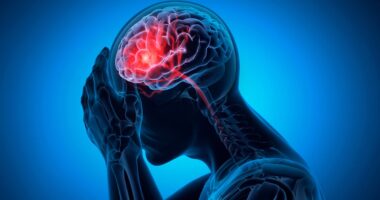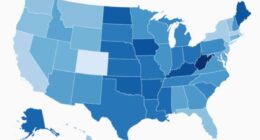
A tragic actress’s emotional mother has revealed how her daughter died from a blood clot three weeks after her 30th birthday after ‘physician associates’ dismissed her symptoms as ‘anxiety’.
The parents of Emily Chesterton are now warning of the dangers patients face from the expansion of a government scheme for more physician associates or PAs.
Emily, 30, was seen by a PA at her appointment at the Vale Practice surgery in north London on October 31, 2022 – having thought she was consulting a doctor.
Her symptoms included calf pain, a swollen and hot leg, shortness of breath and she was finding it increasingly difficult to walk.
Emily, who was from Greater Manchester but moved to London to pursue a career in acting, believed she had been seen by a GP – but instead physician associates prescribed her propranolol medication for anxiety while also suggesting long Covid.
She collapsed later that evening and was rushed to hospital, where she was found to have a blood blot in her left calf, but her heart had stopped beating and doctors could not save her life.
A coroner concluded last July her life could have been saved if she had been to A&E and given a pulmonary embolism.
Her mother Marion Chesterton has now raised concerns about plans to expand the use of PAs.
She said today: ‘To lose a child is terrible but when you find out the death was preventable, should have been prevented, it’s just devastating – it’s torture.’
‘All patients should have the right to know who is treating them and have the choice to see a fully-qualified doctor.
‘If I had my time over, I would have taken her straight to A&E. That is the biggest regret of my life. My advice to anyone is always ask who you are seeing.’
She told the BBC ‘doctor’s assistant’ would be a more accurate title.
England now has about 4,000 PAs although the government wants to reach 10,000 by 2036 to help cover widespread NHS staff shortages.
The NHS careers website says PAs ‘support doctors in the diagnosis and management of patients’ – and also states: ‘You’ll work under the supervision of a doctor.’
PAs usually study for a bioscience-related degree before going on a two-year integrated masters course.
Emily’s parents, both retired teachers, have called for greater clarity on whether patients are seen by a GP or else by a PA.
Brendan Chesterton has said: ‘We are concerned that patients are seeing physician associates and not realising that they are not doctors, like Emily.’
The PA who saw Emily in October last year had not properly introduced herself and her role, leading Emily to believe she had received informed advice from a GP.
The PA’s contract was later terminated and the practice no longer employs PAs.
The coroner said Emily ‘should have been immediately referred to a hospital emergency unit’.
They continued: ‘If she had been on either occasion, the likelihood is she would have been treated for pulmonary embolism and would have survived.’
An NHS spokesperson said after the inquest: ‘Patient safety lies at the heart of the NHS long-term workforce plan and the role of physician associates are a vitally important part of our staffing mix, with over 3,000 members of staff working in this role across the health service in England.
‘Physician associates are qualified and trained health professionals usually with a bioscience-related degree, working alongside fully trained doctors as part of the care team.’










